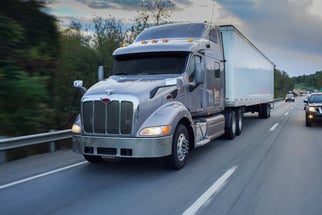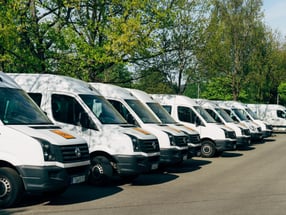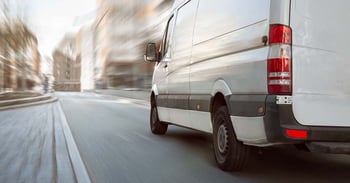Did you know that dash cam sales are growing at a rate of almost 13% per year? As more people realize how valuable they are in case you get into an accident, more people are looking for solutions to save them money. And in some cases, they can save their lives, too.
A dash cam is also an excellent way to document your driving habits if something goes wrong with your car. But what if that camera gets damaged or stolen? What happens when you need to replace it?
Luckily, there are many different options available today, including some very affordable ones. So let's take a closer look at what's involved in choosing a dash cam and why they're of great benefit to businesses as well as the average driver.
What Is a Dash Cam?
A dashboard camera is a small video recorder mounted inside your vehicle. Often, dash cams record at 30 frames per second. That makes them perfect for capturing fast-moving events.
Examples of these include crashes and other dangerous situations. Most police officers use these cameras for evidence of any traffic violations.
Types of Dash Cameras Available Today
There are plenty of companies making dash cams, so choosing one can be confusing. Here are some types of models you should consider buying:
Portable Models
Portable dash cams come in two varieties: handheld units and built-in models. Handheld units are easy to carry around and store away after recording.
Built-in models affix to your windshield and need no extra storage space. Both styles offer similar features, though each has its advantages and disadvantages.
Wired-In Dash Cams
Wired-in dash cams are great for cars with factory wiring already present. These models connect directly to the existing electrical system. They work without needing a charge.
Wired-in systems aren't always cheaper than portable ones. That said, for the extra investment, they do provide some unique benefits.
First off, they get rid of the need for external batteries. Second, they allow drivers to view live images. These images often come up on their smartphones via Bluetooth technology. Third, these dash cams can also upload videos to cloud services via Wi-Fi networks.
Benefits of a Dash Camera
There are several reasons why having a dash cam might be beneficial to you as a driver. Here are three main benefits of owning one.
Avoiding Accidents
If you have ever been in an accident, you know how important it is to prove responsibility. Suppose someone else hits you while distracted behind the wheel. You could end up paying out thousands of dollars in damages.
Yet, suppose you had a dash cam installed in your car. You would not only be able to prove who hit you, but you can also see exactly where you were going before getting into trouble.
You wouldn't even have to worry about losing your license if it's not your fault. That's because this type of footage will provide evidence that will show you were in the right.
Protect Yourself From Liability
Another reason people buy dash cams is to protect themselves against liability claims. When pulled over by law enforcement, they often ask you questions such as "Where did you go?" and "How long were you gone?"
The officer doesn't care whether you went somewhere or not. They are looking for answers that show you weren't obeying the rules of the road. Having a dash cam means you can prove yourself innocent, giving you better odds of avoiding a ticket.
Speed Up Evidence
Many states now allow motorists to submit traffic tickets online. With a dash cam, police officers no longer need to write citations out. Instead, they can view recorded clips and issue fines on the spot. That speeds things up a great deal. Instead of waiting days or weeks for paperwork, officers can send notices via email.
That makes life easier for everyone involved. Not only does it save time, but it also helps keep records accurate. That way, insurance providers don't pay out more money than necessary. In turn, that keeps premiums down for drivers.
Send SOS Signals
In an emergency, a dash cam with GPS lets drivers share their location with loved ones. If someone needs help, family members will receive a notification immediately. They'll be able to find you fast using Google Maps or other mapping apps.
It's easy to forget what happened after leaving home, especially during rush-hour traffic. By recording video at all times, you'll never lose track of your whereabouts again. Plus, you'll be able to review the footage later to make sure everything turned out okay.
As well as sending messages to loved ones, these devices often include 911 call functions. For the most serious cases, some dash cams trigger an automatic alert to authorities. They can tell the police or hospital that you've been in an accident.
Prevent Thefts and Burglaries
When thieves break into cars, many victims keep quiet rather than risk the expense of raising a case. That said, dash cams provide proof of a crime. Uploading footage to law enforcement agencies allows them to track down suspects fast.
After breaking into vehicles, burglars usually take anything valuable inside. Even when criminals are successful, dash cameras still help owners recover stolen property. By capturing images, owners can use these videos to identify missing belongings.
The same technology can detect faces in photos. Some high-spec devices recognize objects like wallets, laptops, or cell phones. Once identified, the owner can contact local police departments to file reports.
Combat Insurance Fraud
Suppose you're involved in an accident where you suspect fraudulent activity. A dash cam could help prove your innocence. When filing claims against insurers, people sometimes hide their evidence. But suppose you record videos while events unfold from your vehicle. You have more chance of video evidence.
For example, say you were driving along one day when another driver rear-ended you. You didn't see who was behind you until it was too late. Luckily, you had a dash cam installed. Now, you can show the insurer how the crash occurred.
Document Your Driving Habits
Another benefit of having a dash cam is keeping track of all your driving habits over time. For example, suppose you notice yourself starting to speed more often than usual. You may decide to install a new camera so you can catch yourself doing it again.
Or you start noticing certain roads that seem to cause problems every day. You'll be able to capture those moments and make sure you don't drive through them anymore.
Professional Use Cases for Dash Cams
Many businesses use dash cams for similar reasons mentioned above. But many use them for more customized solutions. Here are some examples.
Dash Cams for Emergency Services
Police officers rely on dash cams because they offer several benefits. First, they give cops access to real-time information about incidents as they happen. Second, they enable officers to document everything they do during traffic stops. Third, they let officers share videos via social media platforms. Finally, dash cams also serve as evidence in courtrooms.
Businesses using dash cams for emergencies might consider adding features like GPS tracking, night vision capabilities, and even thermal imaging. These will ensure that employees get the best possible service at all times.
Dash Cams for Businesses
Businesses use dash cams to protect themselves against potential legal claims. For example, taxi drivers use a GPS tracker for cars when they are running errands. When coupled with a dash cam and CCTV inside the car, these features can provide vital evidence.
Suppose someone gets injured and claims it's due to faulty equipment, which is a false claim. In this case, the business will have clear records counteracting this evidence. This information helps prevent lawsuits.
Businesses should consider using both types of surveillance systems. While dash cams only work well indoors, CCTV works better outside. And since dash cams need constant power, they won't last as long as outdoor security cameras.
Dash Cams for Logistics
Many logistics businesses use dash cams to protect themselves against many threats. For example, truck drivers use fleet tracking dash cams. These fleet tracking systems offer extra features that aren't on traditional dash cams.
What Is an Asset Tracker?
Asset tracking devices are specialist trackers within commercial vehicles. They record vehicle movements and store data about each trip taken by the vehicle.
Information includes mileage traveled, fuel consumption, speed, direction, and time traveled. Asset tracking devices may include one or many cameras.
Some models come equipped with GPS technology and video. Others collect location data without any form of recording.
What Asset Trackers are Available?
The most common asset tracking device is a “fleet tracking” device. That's because it records all trips made by its entire fleet of vehicles. Fleet tracking devices have been around since the 1980s, but now many live in dash cams.
Fleet Management Systems like these usually consist of two main components: a base station and a mobile unit. The base station connects to a computer network.
Here, users can view live footage from the dashboard camera. It's important to note that not all fleets use this type of setup.
For companies that move heavy loads, trailer tracking devices are also an option. These devices work like fleet tracking devices, except trailers have their tracking separate from the cabin.
This type of system often gets chosen over fleet tracking. That's because many truck drivers lose their trailers during overnight stops.
Further, suppose a trailer attempts to pass through customs. These trackers are available to authorities. In doing so, they ensure that the border passing is legitimate and safe.
And, in the case of dash cams, they can also check for suspicious activity, such as stowaways attempting to cross borders.
Benefits of an Asset Vehicle Tracker
Vehicle tracking in trucks, when used with dash cams, acts as fleet GPS tracking systems. This is useful because it lets managers see who drove which vehicles and when.
This information proves invaluable if there’s ever any dispute about who was responsible for damages caused during transport. It also makes it easier to identify rogue employees.
Besides, fleet management software allows you to keep tabs on your assets 24/7. You'll know how much gas gets used, whether the driver stopped to eat lunch, and even if they took regular breaks.
What Makes a Quality Dash Cam?
When shopping for a quality dash cam, it's important to know what good quality looks like. In doing so, look for these features:
High Definition Video Recording
The best cameras record video at 4k resolution. It allows viewers to identify faces and objects within the frame. It also makes viewing easier because the text appears sharper and clearer.
Most manufacturers recommend a 720p resolution, but many high-definition cameras produce higher resolutions these days.
Low-Light Capability
Many dash cams are great for daytime use but struggle at night. Make sure you can buy one with either an LED light or night vision properties. These features allow you to capture images in low lighting conditions.
Number of Cameras
If you're looking for something simple, consider buying one camera. Most cameras focus only on the windshield.
Yet, if you want to capture everything going on inside your vehicle, then get a set of four or five cameras. But you can also buy full sets that wrap around your entire car.
LCD Screen
A high-quality LCD screen means better visibility. Look for screens that display bright colors and sharp detail images. If possible, choose a model with a wide-angle lens. That way, you don't miss anything happening outside the car.
Long Battery Life
Battery life is an important factor when choosing a dash cam. You want one that will last throughout your entire trip. Some models only give you about 30 minutes before running out of battery.
Others can run up to 10 hours straight. If possible, choose a model with many charging options.
It may be more of a challenge to install, but you can buy fuse kits online that allow you to self-install if you are confident enough! Or even better, find a wired-in model.
Auto-Capture
Suppose you plan on using your dash cam to document traffic accidents. Make sure that it captures footage whenever there's an impact. These cameras have special G-sensors.
These sensors trigger "screen grab" accidents in both photo and video form. That way, you won't forget or overwrite the evidence.
Easy Installation and Setup
If you've never installed a dash cam before, this step could take several days. Yet, most models include detailed instructions that walk users through the process.
Also, check online reviews from other customers who have used the same product. They might help you avoid any potential issues during installation.
Many Features In One Package
Some dash cams let you control audio playback. You can also adjust brightness levels and even access GPS data. Others record video footage.
Still, others use both functions at the same time. Make sure you know what kind of functionality you'd like to see included in your dash cam.
Price
Don't be afraid to spend more money if it'll save you time later. For example, suppose you plan on using your camera often.
Invest in a waterproof version, so you don't have to worry about damaging it every time you wash your car. On top of that, make sure you get a warranty that covers all parts and labor costs.
Compatibility
Ensure that your chosen dash cam works with your vehicle. Many models won't fit certain vehicles.
Further, they may not support specific brands of dashboard components. Check compatibility first by reading user manuals and reviewing customer feedback.
Connectivity
Today, many dash cams come with WiFi or a sim card slot. These have several benefits over a traditional model. With internet connectivity, you can back up videos in real time to your smartphone.
Additionally, some dash cams offer live streaming capabilities. With these, you can view recorded content straight on your phone's browser.
Safety Features
Safety itself isn't always a priority when purchasing a dash cam. But there are a few newer features that are worth mentioning. Capturing license plate numbers and speed limits is helpful when reporting accidents.
Other useful features include night vision capabilities, motion detection alerts, and automatic uploading.
Storage Options
Most dash cams come equipped with internal storage space. Depending on how much memory you need, you should expect anywhere between 16GB and 128GB.
Also, some models offer SD card slots as well. When selecting a dashcam, consider whether you prefer removable cards or built-in storage.
Warranty
Last but not least, read the manufacturer's warranty with care. Look for details such as coverage length, replacement cost, and return policies.
What Dash Cam Laws Should I Know About?
Depending on where you live, there must be laws that you need to obey to fit a dash cam in a car. As every state and country is different, you should check what's legal in your area. But here are some examples of things to consider:
Dash Cam Location
Where you mount your dash cam is vital to avoid invalidating your insurance. For example, some places specify that the dash cam cannot sit within the eye-line of the wipers. Others permit a dash cam anywhere on the front screen that isn't in the driver's forward view.
Camera Angle
Suppose you're planning on recording from behind the steering wheel. Keep in mind that most states prohibit cameras mounted at an angle greater than 45 degrees. That means that any dash cam placed above the windshield will likely violate this law.
Audio Playback
In some areas, drivers must turn off their radio while driving. If you want to play music through your dash cam, look into buying one that has a speaker system. Some also allow users to connect to external speakers.
Recording Time Limit
Some states mandate that dash cams record only during daylight hours. Yet, others do not restrict recordings based on time. So, before choosing a dash cam, find out which rules apply in your region.
Data Protection
Suppose you're running a business and are permitted to use a dash cam. Then take a look at how long you should keep the evidence if that's appropriate.
Most companies suggest keeping video footage for no more than 30 days. After that point, it may become difficult to retrieve data.
Also, in some cases, even a dash cam for personal use might need additional notices. They tell the general public that the car is recording for surveillance purposes. So it's always beneficial to do your research before investing in a dash cam.
How Much Does It Cost To Install One?
Installing a dash cam doesn't always mean spending hundreds of dollars. You'll have to make sure that you follow all instructions with care. There are plenty of DIY kits available online.
These kits allow you to install a dash camera without professional help. That way, you can make sure that everything goes according to plan.
But suppose you do want a dash cam installed by a professional fitter. In that case, you can expect to pay labor costs of $50-$100 per camera, depending on the dash camera and car involved.
Get Yourself a Dash Cam Today!
A dash cam is a great way to capture important moments in life. Whether they're accidents, road rage incidents, or everyday occurrences, these devices provide valuable information about our lives.
And when something does go wrong, we know whom to call. With proper care and maintenance, dash cams can last years.
Want to know more about the solutions discussed in this article? Click to learn more about Linxup, Linxup Dash Cams, and Fleet Tracking solutions. Or reach out to us, click here on your phone or dial: 1-877-907-0801.



